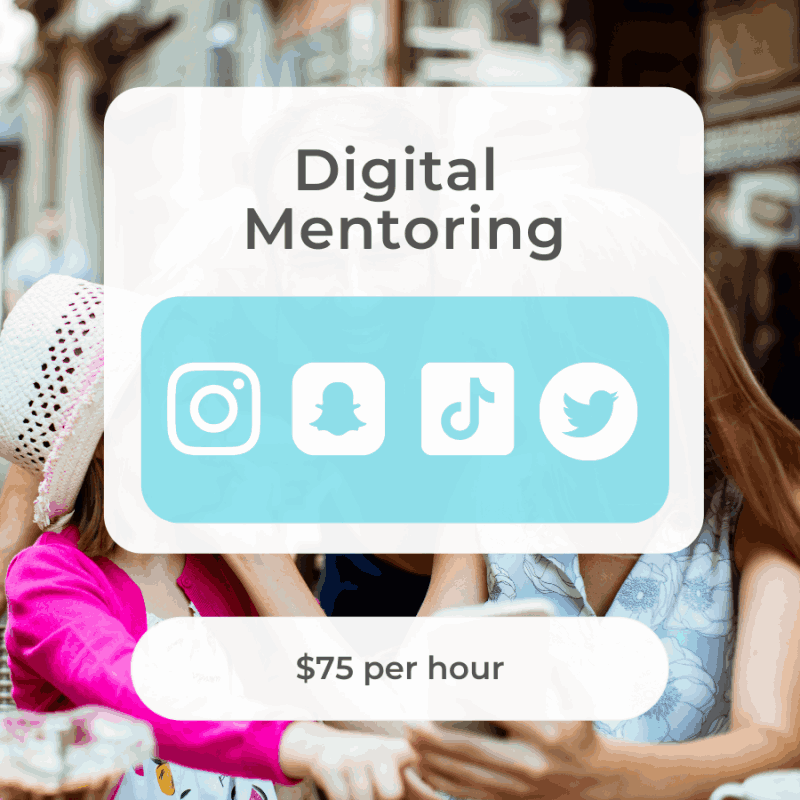Educator Programs
Welcome Educators!
For all parents and caregivers. Protecting your family’s well-being, safety, and privacy in our fast-paced and ever-changing digital world. From early access to technology and increasing digital-based anxieties, we’ll inform you of the long-term impacts of our digital choices and help you set healthy boundaries towards screen time limitations and account restrictions.
Educator Workshops
One-on-One Services



Frequently Asked Questions
Smart Gen evaluates the most popular interactive and social media apps with our copywritten algorithm which evaluates safety, privacy, and content. We share our compiled research throughout our website and resource page and update it every three months. If you don’t see what you’re looking for, submit an app for review below.
SGS recommends children being at least 13 years or older. Social media offers a great opportunity for students to connect but also has many negative implications on their mental and emotional well-being. We recommend not only waiting until age 13 but also waiting until your child is mentally and emotionally prepared to handle the digital world with the right tools to know what to do when someone goes wrong. This is not only a guideline we have but also a legal one. The Children’s Online Privacy Protection Act of 1998 is a United States federal law that imposes certain requirements on operators of websites or online services directed to children under 13 years of age and on operators of other websites or online services that have actual knowledge that they are collecting personal information online from a child under 13 years of age.
There are numerous ways to monitor your child’s online activity through family pairing and screen time on devices. However, the most proactive approach is by opening up communication. It’s essential to build trust with your child. They need to know that if they come to you with an online problem that they won’t be greeted with anger and blame. Every interaction you have with your child when they do something wrong can either increase or decrease the likelihood of them turning to you for assistance again. Build trust with your student and be there for open and understanding conversation. For more information about how to start being an open communication listen to our podcast.

